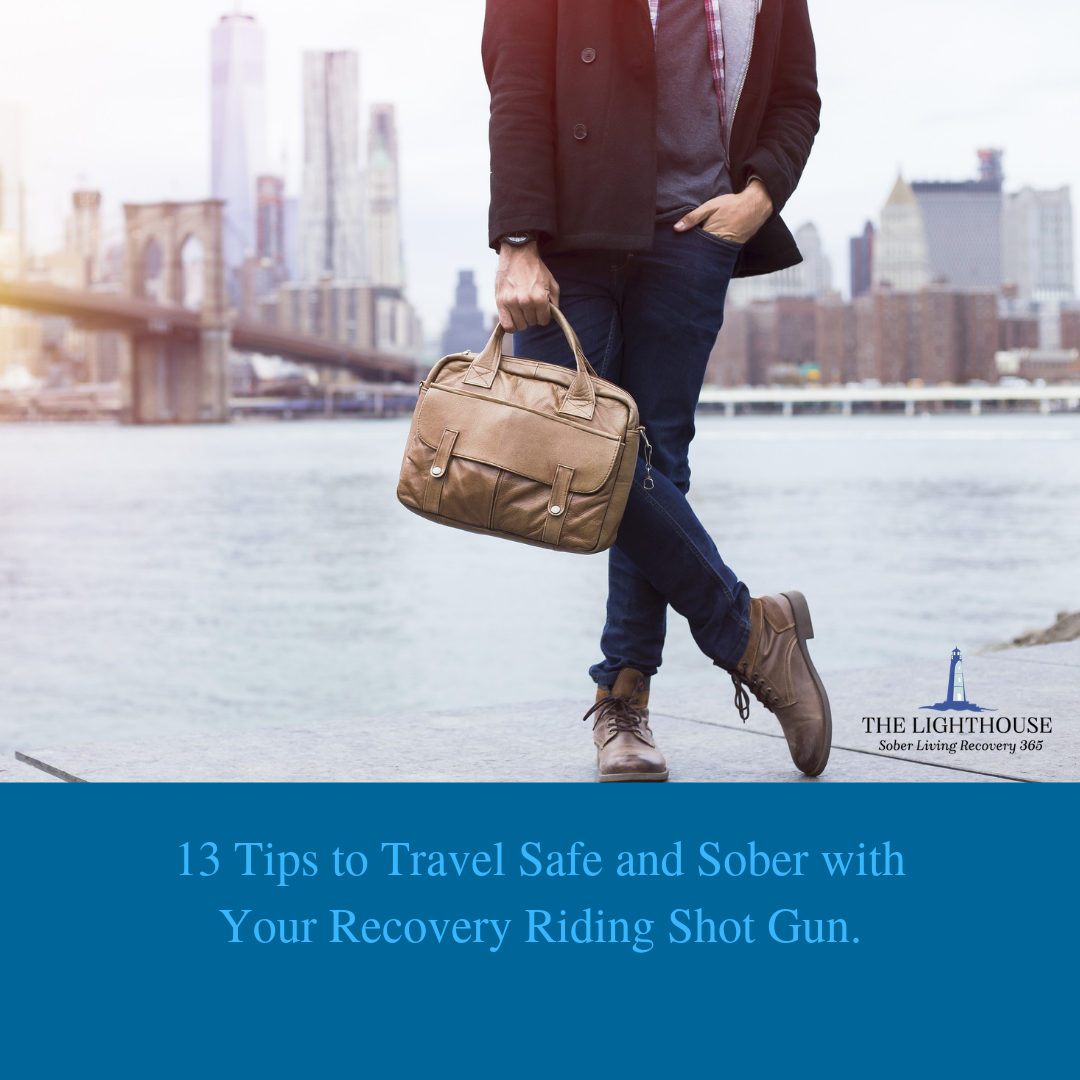Recovery Coaching Suggestions: 13 Tips to Travel Safe and Sober with Your Recovery Riding Shotgun.
For many people, recovery doesn’t mean just not picking up the drug of choice. Recovery has become a rewarding transformation in life. As each person grows within their recovery, their bond to their community, their sober support network, their family, and their belief in their self becomes stronger.
Recovery can be complicated, but with persistence and the humility to ask for help, anyone can reap its benefits.
There will come a time in your recovery when you will have to leave the comforts of your support network and travel. It might be for work, a family crisis, or a well-deserved vacation.
You might be nervous about leaving the comfort of your family, recovery coach, and twelve-step home meetings. Nonetheless, there is no need to fear travel. As long as you stay true to the program you follow each day in recovery, with some minor adjustments, you will be fine.
Before you hop a plane, for your journey, read this post, so you don’t leave your recovery behind.
1- Plan Ahead
The internet has made being sure you have the meeting days and times for the support groups you attend at home. Before you leave, search the 12-Step Group, SMART, or Refuge Recovery in the town or city you’re heading to. Create your travel calendar with these support group times included.
If attending support group meetings is a vital component of your recovery plan, connect with a group once you have reached your destination or as soon as you can. Taking the time to do this could make or break or business or leisurely trip.
2- Make local contacts.
While you are searching Google for support group schedules in the area you are visiting, also search for visitor information packages. Many sponsors, friends in recovery, and recovery organizations have pages available with resources posted for a visitor in recovery.
Sometimes this information can be found on a town’s government page. If you cannot find information about contacts within the city you are visiting, it doesn’t mean you should give up your search.
You can call the local Alcoholics Anonymous or Narcotics Anonymous office for names and numbers.
Ask your sponsor or recovery coach to reach out to their list of recovery resources and see if they can turn up a person in recovery for you to connect with.
Once you find some numbers or email addresses, connect with these persons in recovery to establish rapport and introduce yourself, and make a plan for when you arrive in their community.
Reaching out to the local recovery community will help you feel connected and supported while you are in an unfamiliar place.
3- Bring recovery literature
Staying informed and consistently learning about recovery, addiction, and substance use disorder is vital to creating a plan to sustain long-term recovery.
Read recovery literature, personal memoirs of triumph and success, or inspirational daily meditation guide such as Just for Today.
If you would rather listen to recovery based seminars or talks, the internet has a vast library of recovery talks you can download and take anywhere with you. Never leave home without literature to help you pass the time while traveling and stay focused on your recovery.
Besides recovery literature, don’t forget to pack your recovery or gratitude journal. If you journal at home, you should still journal at the same time each day while on business or vacation. Recovery is a process, and it needs to be worked every day. Don’t make changes in your routine just because you are traveling.
4- Keep in mind – HALT (Hungry, Angry, Lonely, or Tired)
Never let yourself become too hungry, angry, lonely, or tired. Any change in one of these areas could trigger cravings or an urge to use. Bring snacks with you when you are traveling. Take your time getting somewhere if you are driving, take breaks, stretch, exercise, and sleep.
Traveling can be frustrating. Remember, you are leaving your comfort zone, so keep in contact with your sober support so that you can stay focused, mindful, and emotionally stable.
5- Stay in contact with your home network.
If you have taken time to put some of these suggestions in place before you travel, you’re on the right track, but still, stay in contact with your support network at home too. No one knows you better than yourself, besides your family, recovery coach, or sponsor, so find time to stay connected with your home sober network.
Even when you have taken the time to create a list of contacts to reach out to at your destination you are headed to, it is essential to make contact with your support network at home. Plus, you have developed a bond with your home support network, so I look forward to sharing with them about both the good times and bad moments during your trip.
6- Have the booze removed.
If you are staying in a hotel room, it will help to call ahead and have them take the alcohol out of your room.
Television has been doing its part to break the stigma surrounding alcohol and drug addiction. If any of you watch the show, This is Us; you might remember the episode when Kevin was staying in a hotel room, and his travel fridge was stocked with beer and wine. Fortunately for Kevin, he found a way to not drink these bottles of alcohol by doing push-ups in his room all night long, but you don’t have to tempt yourself.
Calling ahead and having the alcohol removed from your room will reduce your chances of being tempted at the wrong moment. If you are staying with a friend or relative, who drinks bring along your beverages, so you have something safe to drink. Try not to rely on others who might not understand how difficult it is not to drink.
7- Stay away from certain people and places.
Remember, just because you are away from familiar territory doesn’t mean it is okay to be in places where people are drinking and drugging. If you are not with sober, supportive people, you should shy away from dance clubs, night clubs, or old places you used to frequent when you were actively using. A trigger is a trigger. A place, specific part of town, bar, or restaurant can be enough to trigger old emotions or uncomfortable situations. Steer clear of these types of sites while on your business or personal trip.
8- Leave business gatherings early
When the trip is business-related, remember that you don’t have to partake in happy hour or go to receptions and parties, but if you do, it’s okay to leave early. When you are at the social gathering for business, show up first, and leave early. It doesn’t matter if you are there for 5 minutes or two hours. You still get the same amount of credit. Be pleasant, say hello to those hosting the party, and wish them the best when you leave. It’s always a bonus, knowing you went before the alcohol started to get passed around. Plus, you never have to guess if you embarrassed yourself the next morning.
9 – Prepare for emotional family visits
Family visits for weddings, birthdays, reunions, and funerals can always be fun, but still, seem to be stressed with intensified emotions. These emotions can be troublesome to your recovery. Before you leave for your trip, plan with your recovery coach what you should do if there is a family drama. Practice what you’ll say and how you should handle relatives who might trigger emotional feelings. Be ready to excuse yourself if you feel overwhelmed. Call your coach before you arrive, during the event, and immediately after. It’s necessary to make a connection with your recovery network to help you maintain your composure.
10- In a pinch, turn to technology.
The internet has a wealth of recovery resources and apps. You can download several apps to take along with you on your trip in case you feel stressed out and can’t get to a meeting, or the meeting you found is not to your liking. Tod Dodge, a Recovery Coach with Lighthouse 365, shared a profound tip with me several weeks ago that I wish I had heard much sooner. He said, “If you are at a meeting and you don’t like the message being said, the environment, or the messengers, get up and leave. Find a new meeting before you let resentment start to build up.”
When you have a smartphone, you can always be connected to a support network through several apps you can try include:
RECOVERYBOX ADDICTION RECOVERY
SOBER GRID
SOBERTOOL
11 – Plan for sober activities
Plan to visit the city’s welcome center or website before arrival. Plan day trips to museums, art galleries, nature walks, or other tourist attractions the city is an important part of. Learn about local history and culture. Traveling in recovery affords you the ability to enjoy yourself, go to bed sober, and wake up without a hangover.
Use the extra time to take advantage of the local culture.
12 – Create an escape plan
Always have a plan ready for when you feel you need to leave. Try to be as graceful as possible, but if you are uncomfortable or experiencing a triggering situation, go and explain to your host later. Keep your list of contacts at home and in the location you are traveling to, handy, so you can reach out for support if the need arises. If you create a plan, it will be much easier to keep your recovery first.
13- Recover Out Loud
Trey Laird, CEO, and Founder of The Lighthouse’s #1 tip for recovery, which applies to any situation, should become your mantra.
The more people who know that you don’t drink or use drugs, the fewer people you will have to drink or do drugs with. When you are on vacation, Recover Out Loud, and let all the people you meet or come in contact with that your choice is not to drink or drug today or any day.
Bon voyage
With these 13 tips, you should be prepared and ready to travel for business and pleasure. Pack your bags with recovery literature and journals, so they are easy to reach for. Contact recovery support in the town you’re headed to, get a meeting schedule, and reach out to your home network while away. Stay connected, and have a good time. You deserve it.
The most crucial piece for me when I travel for business is the ability to plan. For me, that means identifying other folks in my recovery network who might live in the area, who might live in the area, as well as local meetings before my departure.”
Being able to find a meeting in any town is vital to my safe travel and recovery.
Call Trey Laird 203-400-8065



